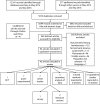Determinants of Tenancy Sustainment Following Homelessness: A Systematic Review
- PMID: 30252526
- PMCID: PMC6187778
- DOI: 10.2105/AJPH.2018.304652
Determinants of Tenancy Sustainment Following Homelessness: A Systematic Review
Abstract
Background: Tenancy sustainment-maintenance of a tenancy to avoid a premature end of tenure-is fundamental to prevention of homelessness. Understanding what enables a successful tenancy is essential in informing interventions designed to support people in leaving homelessness.
Objectives: To conduct a systematic review identifying determinants associated with tenancy sustainment following homelessness.
Search methods: A detailed search of 12 electronic databases, as well as gray literature sources, was conducted in 2015 and updated in 2016.
Selection criteria: We included all study designs with a population of homeless or formerly homeless individuals in which tenancy sustainment was the primary outcome. Two reviewers independently carried out abstract and full-text reviews. QualSyst, a validated quality appraisal tool, was used in assessing the methodological quality of articles.
Data collection and analysis: A data extraction form was developed for the review and was completed by a pair of reviewers to ensure accuracy. The heterogeneity of the studies included indicated that a narrative overview of the results was most appropriate.
Main results: Forty-three articles reporting 38 studies were included. Determinants were categorized at 4 levels: individual, interpersonal, community, and structural. Participation in specific programs (e.g., Housing First), receipt of social support, and older age were identified as positive determinants of tenancy sustainment.
Conclusions: This systematic review is the first, to our knowledge, to focus solely on tenancy sustainment as a primary outcome. Although a range of determinants associated with tenancy sustainment were identified, it was difficult to draw strong conclusions owing to the heterogeneity of the studies. Despite being a fundamental concept in homelessness research, tenancy sustainment is poorly defined and conceptualized. A deeper understanding of tenancy sustainment will inform the development and evaluation of interventions that support people in leaving homelessness and maintaining tenancies. Public Health Implications. Housing stability is central to preventing homelessness and addressing the numerous public health concerns that can co-occur with homelessness. Our review highlights that a standardized approach to measuring housing stability and more high-quality intervention studies are essential.
Figures
References
-
- Pleace N, Bretherton J. The case for Housing First in the European Union: a critical evaluation of concerns about effectiveness. Eur J Homelessness. 2013;7(2):21–41.
-
- Iaquinta MS. A systematic review of the transition from homelessness to finding a home. J Community Health Nurs. 2016;33(1):20–41. - PubMed
-
- O’Sullivan E. Pathways through homelessness: theoretical constructions and policy implications. In: Doherty J, Edgar B, editors. In My Caravan, I Feel Like Superman: Essays in Honour of Henk Meert 1963–2006. Brussels, Belgium: Feantsa; 2008. pp. 71–100.
-
- Johnstone M, Parsell C, Jetten J, Dingle G, Walter Z. Breaking the cycle of homelessness: housing stability and social support as predictors of long-term well-being. Housing Stud. 2016;31(4):410–426.
Publication types
MeSH terms
LinkOut - more resources
Full Text Sources
Other Literature Sources
Medical


